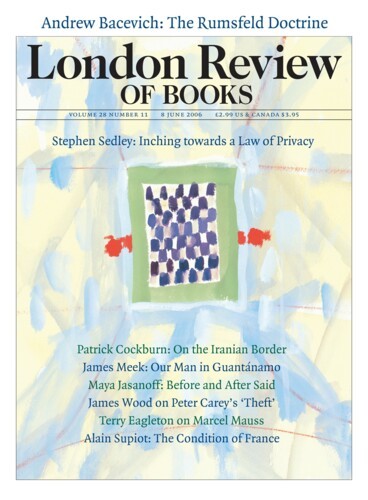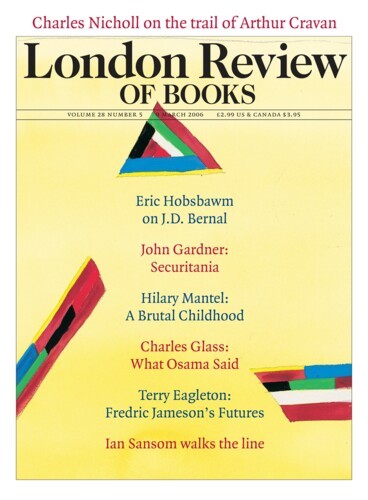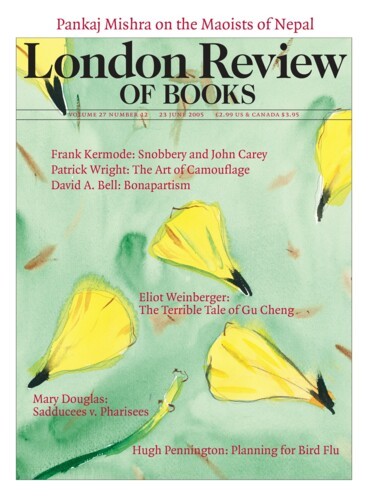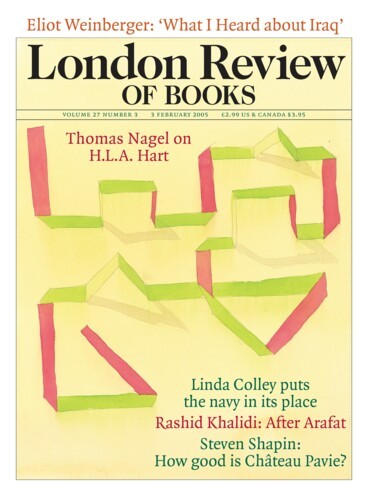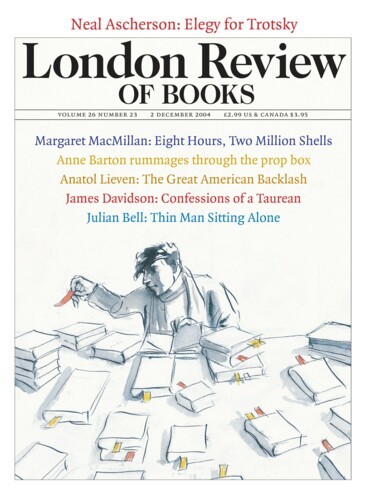Eat it: Marcel Mauss
Terry Eagleton, 8 June 2006
Hegel thought it a mark of the modern age that philosophy had taken over from art and religion as the custodian of truth. The World Spirit had come to self-consciousness in his own head, rendering any less rational form of knowledge outmoded. Yet religion has retained its capacity to spark riots and launch civil wars, while art has survived as a refined version of religion for the...
